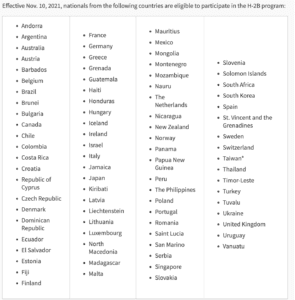How Do ‘Red Flag’ Gun Laws Work?
Most headlines about mass shootings have a common thread. In many cases, family, friends, or acquaintances knew that the perpetrator was a troubled individual. Additionally, death by suicide is the leading cause of death in the U.S., half of which involve guns.
So, gun-control advocates argue, can something be done to ensure disturbed individuals can’t access a gun? In response to the increase in suicides and mass shootings by troubled individuals, many states implemented “risk protection orders” or “extreme risk orders,” also known as “red flag” laws.
What Are ‘Red Flag’ Laws?
Red flag laws allow family members or law enforcement to petition a court to order the temporary removal of firearms from a troubled person. The court determines if the person is at serious risk of harming themselves or others with a gun and, if so, temporarily orders the person to surrender the firearm.
Are Red Flag Laws Constitutional?
The Second Amendment protects an individual’s right to bear arms. Although, arguably, the framers of the Constitution were thinking about muskets and not today’s higher-powered rifles.
When the government passes a law, it must not violate the constitutional rights of citizens. Laws that may infringe on a fundamental right, such as the right to own a gun, are subject to “strict scrutiny.” To uphold a regulation under the strict scrutiny analysis, the law must have a compelling state interest and be narrowly tailored to achieve that interest.
For example, you have the right to free speech. However, the government may regulate the time, place, and manner of speech if there is a compelling interest.
It is illegal to yell “FIRE!” in a crowded theater. The First Amendment right to free speech is fundamental. However, the government has a compelling interest not to incite panic or unsafe conditions that this specific speech might create. The law is narrowly tailored in that you can’t yell “FIRE!” The law does not restrict all speech. You can yell, “I LOVE PEACHES!” But why would you?
Similarly, red flag laws must pass strict scrutiny. Therefore, any laws and regulations must be narrowly tailored to achieve a compelling state interest. Generally, these laws have similar characteristics: they allow for due process and are limited in scope. Due process in this case essentially means that the individual has a hearing in front of a judge. And if the judge upholds the order, authorities remove the firearm for a short period.
Furthermore, there is no fine or penalty for possession of a firearm. If the owner obtained the gun legally and is legally permitted to have it, then they only lose the right to possess firearms while determined to be “at risk.”
How Does an Extreme Risk Order Work?
Typically, law enforcement or a family member presents evidence that an individual poses a serious threat of harm to themselves or others. A judge may issue a short-term order to remove the firearm from the individual. Then that individual can submit evidence of why they believe the extreme risk order is unwarranted (they can have a lawyer represent them).
Can I Petition in My State?
Currently, there 19 states have extreme risk laws. Each state has different rules regarding who may petition to have a court remove firearms from an individual. If you can’t petition directly, you can reach out to law enforcement or other authorities in your state.
| State | Who May Petition |
| California | Law enforcement, immediate family members, employers, coworkers, employees/teachers |
| Colorado | Law enforcement, family/household member |
| Connecticut | Law enforcement, family/household members, medical professionals |
| Delaware | Law enforcement, family members |
| Florida | Law enforcement |
| Hawaii | Law enforcement, family/household members, medical professionals, educators, colleagues |
| Illinois | Law enforcement, family members |
| Indiana | Law enforcement |
| Maryland | Law enforcement, family members, doctors, mental health professionals |
| Massachusetts | Family/household members, gun licensing authorities |
| New Jersey | Law enforcement, family/household members |
| New York | Law enforcement, family/household members, school administrators, district attorneys |
| Nevada | Law enforcement, family/household members |
| New Mexico | Law enforcement |
| Oregon | Law enforcement, family/household members |
| Rhode Island | Law enforcement |
| Vermont | Office of the attorney general, prosecutors |
| Virginia | Law enforcement and state (commonwealth) attorneys |
| Washington | Law enforcement, family/household members |
However, if you have immediate concerns about a family member harming themselves or others, call 911 or the Suicide Prevention Hotline at 800-273-TALK (8255).
Will There Be a Federal Red Flag Law?
With the most recent shooting at a Uvalde elementary school, there is now another call on Congress to develop bipartisan gun control measures. One of those proposed measures is enacting a federal red flag law. Time will tell if lawmakers are able to reach consensus on any reforms.
You Don’t Have To Solve This on Your Own – Get a Lawyer’s Help
Meeting with a lawyer can help you understand your options and how to best protect your rights. Visit our attorney directory to find a lawyer near you who can help.






